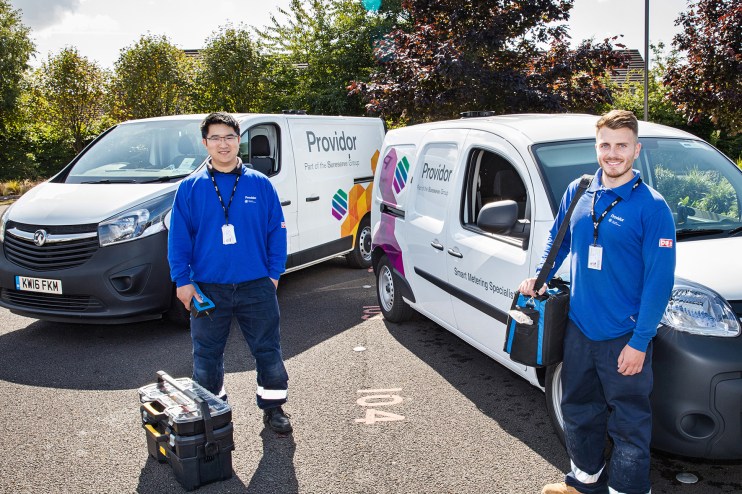Heat pumps too expensive to meet social housing needs, warns Sureserve

Heat pumps are still too expensive for social housing providers considering the transition from gas boilers, Sureserve boss Peter Smith has warned.
The chief executive of a leading energy services firm told City A.M. that “the maths doesn’t stack up” for installing heat pumps compared to established heating options.
He revealed it costs his firm £3,000 to fit a new gas boiler for a social housing tenant, but that it costs three times as much to install a heat pump – even with the help of £5,000 grants offered by Downing Street as part of the £450m Boiler Upgrade Scheme.
With Sureserve obliged to provide heating to as many vulnerable customers as possible, Smith argued it had no choice but to prioritise gas boilers to ensure all its clients could stay warm in the winter.
Smith said: “While the government is talking the right language here – the commercial reality is that for social housing clients, it doesn’t work. Until something changes in the financial dynamics, social housing clients are not going to make that transition.”
The government has set out ambitions for all new heating systems installed in UK homes from 2035 to be low carbon and for all homes to have an energy efficiency certificate grade of C or above.
To achieve this, it wants to boost the heat pump market to around 600,000 installations per year by 2028.
Smith dismissed this target and argued that not only did the UK lack enough heat pumps on an annual basis, but there were also “not enough engineers in the UK to install 600,000 heat pumps”.
He said: “That’s one of those headline grabbing notes that is a little meaningless, because it’s an intention from the government but the volume heat pumps aren’t available and the volume of engineers aren’t available.”
This did not mean the company had no green aspirations – with Smith confirming that the company has engineers with expertise in heat pump installations, in case the product became more commercially viable.
He was also open minded to solar panels and hydrogen boilers as a source of renewable energy in the future.
Smith said: “We absolutely need to be looking to build our renewables capability both in house and through acquisitions so that we are at the forefront of that energy transition.”
The company is committed to transitioning its fleet of vans from diesel to electric, with 11 per cent of its vehicles now electric, compared three per cent in September 2021.
The Sureserve boss was speaking to City A.M. after another robust round of results for the company.
In its full year trading update, it revealed revenue had risen 27 per cent to £275.1m from £216.6m the year before.
The company’s order book has increased 18 per cent to £593.5m from £502.9m, while pre-tax profit soared 41 per cent to £15.6m from £11.1m.
Overall, operating profit increased 36 per cent to £16.4m from £12.1m the year before.
This follows a flurry of acquisition activity in recent years, including a 10-year £20m agreement with Tower Hamlets Homes to provide domestic gas services for its council houses in February.
It also snapped up Corenergy last month in a £7.5m deal and Vinshire Gas Limited in 2021.
Shares in the company were up 3.55 per cent on the FTSE AIM All-Share at close of play.